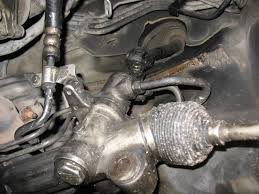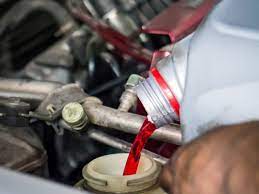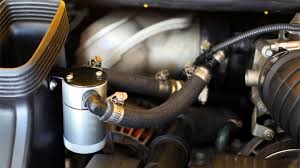Steering wheel is making noise when turning; when you turn your steering wheel, there should be no noise coming from it. If you hear a clunking or whirring sound, it may mean that something is wrong with your vehicle’s steering system. This can be very dangerous because it means that you’ll have less control over your vehicle while driving on the road. In order to get this checked out and determine the problem, it’s best to have an experienced mechanic inspect your car for signs of wear and tear on components like tie rods, ball joints and power steering pumps so that they can make recommendations for repair or replacement as needed.
There is a problem with the steering system, which is causing noise when you are turning the steering wheel.
The steering system is made up of many parts. The steering wheel is connected to the steering rack, which then connects to the steering column. This last part connects to your wheels.
When you turn your wheel, it rotates a shaft on the end of which are two ball bearings that connect to two other shafts inside the steering rack. These shafts have teeth that mesh with gears mounted on each side of them. As you turn your wheel, these gears rotate as well and move fluid through hoses in order for you to turn your wheels without having to physically turn them yourself—you just steer from where you are sitting!
There are many different types of noises that could mean something is wrong with this system:
One of the reasons your steering wheel may be making noise when you turn it could be that you have a bad power steering pump.
One of the reasons your steering wheel may be making noise when you turn it could be that you have a bad power steering pump. The power steering pump is what pumps the fluid to the steering rack. If this pump has gone bad, it can make a whining sound when you start up your car and/or drive around town. The pump can also make a squealing sound while driving at low speeds as well as after turning off your vehicle’s engine or when shifting gears in an automatic transmission vehicle. In addition, if there is excessive play in the steering wheel shaft or rack assembly due to worn bearings, bushings or joints in them (which are common causes), then the hydraulic fluid will not always return properly to its reservoir after being pumped out by the motor within which lies inside each one of these assemblies – this will result in excess sloshing around inside your “power” unit causing damage over time which leads back again: That’s right! More noise coming from underneath those panels somewhere near where all those lines connect together into one big mess behind them…
If the power steering pump is bad and it sounds like a whining noise, it’s likely due to low power steering fluid levels.
If the power steering pump is bad and it sounds like a whining noise, it’s likely due to low power steering fluid levels. To check your fluid levels, open your hood and look at your engine. There should be a dipstick in there somewhere—usually on the driver’s side of the engine compartment. Check it with a clean paper towel or rag and add more if necessary until you see FULL on the dipstick (basically up to the top line). If you’re still having issues after that, then you probably have a bad power steering pump!
If this is the case, don’t worry—you can replace it yourself with some basic tools and know-how.
Another reason your car may make noise when turning could be that your power steering pump belt is loose or worn out.
Another reason your car may make noise when turning could be that your power steering pump belt is loose or worn out. The power steering pump belt connects the water pump to the power steering pump, which helps to eliminate wear on other components. If you hear a squeaking or grinding sound as you’re driving, this could indicate that your belt is loose or has worn out and needs replacing.
If you notice an abnormal grinding sound when turning at low speeds, it’s likely due to a problem with your power steering system; however, if it happens only when going in reverse, then it’s probably due to problems with the transmission or differential gear oil viscosity (i.e., too thin).
You could also have a bad power steering rack, which can cause noise in the steering wheel when turning left or right, or in both directions.
- You could also have a bad power steering rack, which can cause noise in the steering wheel when turning left or right, or in both directions. When you turn the steering wheel and you hear a humming sound that gets louder as you turn more, your power steering rack is likely damaged. The most common cause of this problem is corrosion on the inner walls of the parts of your car’s suspension system that connect with each other. In order to fix this issue, you’ll need to remove all of these connecting pieces and clean them thoroughly with an electrical wire brush (or another tool) until they’re completely free from corrosion. After cleaning them off thoroughly and reassembling everything back together properly, there shouldn’t be any more noises coming from your car’s suspension system!
- Read Also : How to Fix a Steering Wheel
Other components that can make noise in your vehicle’s steering system include a bad tie rod and ball joints.
Other components that can make noise in your vehicle’s steering system include a bad tie rod and ball joints. The tie rod connects the steering rack to the wheels, and the ball joints connect the tie rods to the control arms. If either of these two parts is bad, it can cause excessive play and make noise when turning.
If you’re experiencing rattling noises from inside your car’s center console or glove box, there could be a number of possible causes for this problem. The first thing you’ll want to check out is whether anything has fallen into your center console area, like loose change or some other small items that might have slipped into there unnoticed by you until now (you know who I’m talking about).
Usually if there is a problem with one of these parts, the car will pull to one side, require more effort to turn, or make clunking and popping noises from the suspension system when you go over bumps.
Most of the time, if there is a problem with one of these parts, the car will pull to one side, require more effort to turn, or make clunking and popping noises from the suspension system when you go over bumps.
If you are experiencing any of these symptoms it is important to have your vehicle checked by a trained mechanic as soon as possible.
If your car makes noise when turning and you’re not sure where it’s coming from, it’s best to have it inspected by an experienced mechanic as soon as possible.
If your car makes noise when turning and you’re not sure where it’s coming from, it’s best to have the problem diagnosed by an experienced mechanic as soon as possible. If you don’t know what the problem is, you can’t fix it!
If your steering wheel makes a loud grinding sound when turning left or right, this could be a sign of loose steering components or worn suspension parts. A quick inspection from an expert will help determine what needs to be replaced in order to ensure that your vehicle drives smoothly again.
It’s important to have any issues with your vehicle fixed right away rather than letting them go longer than needed—the sooner you get the problem fixed, the less it will cost
Steering systems are complex and it takes a trained mechanic to diagnose problems accurately.
Getting your vehicle’s steering system inspected by a trusted mechanic is the first step in diagnosing and fixing the problem. A good mechanic should be able to give you an accurate estimate of how much time and money it will take for them to fix your car. It’s important that the technician does not try to oversell you on , nor does he or she need to use scare tactics in order to get you into their shop (like telling you that your car will break down on the road if they don’t repair it immediately). Read Also : 10 Basic Car Repairs Everyone Should Know
The next step is determining if there are any other factors contributing to this issue: If so, these too must be addressed before taking any further action. For example, has there been recent work done on this vehicle? Are there any loose bolts or screws? Have they ever experienced problems like these before? These questions help determine which repairs may be necessary while also helping ensure that no additional damage occurs during those repairs—and most importantly: keeping costs down!
Conclusion
It’s important to remember that steering systems are complex, and it takes an experienced mechanic to diagnose them accurately. If your car is making noise when turning, make sure you get it inspected immediately by someone who knows what they’re doing.







